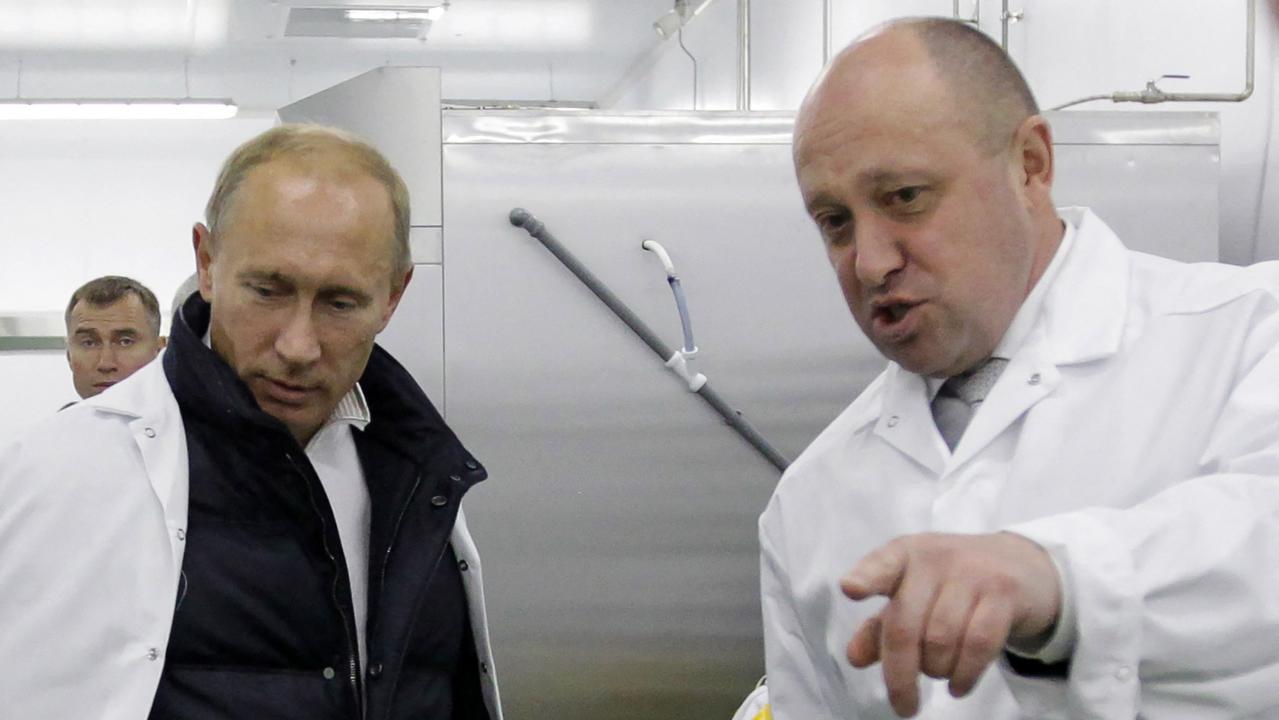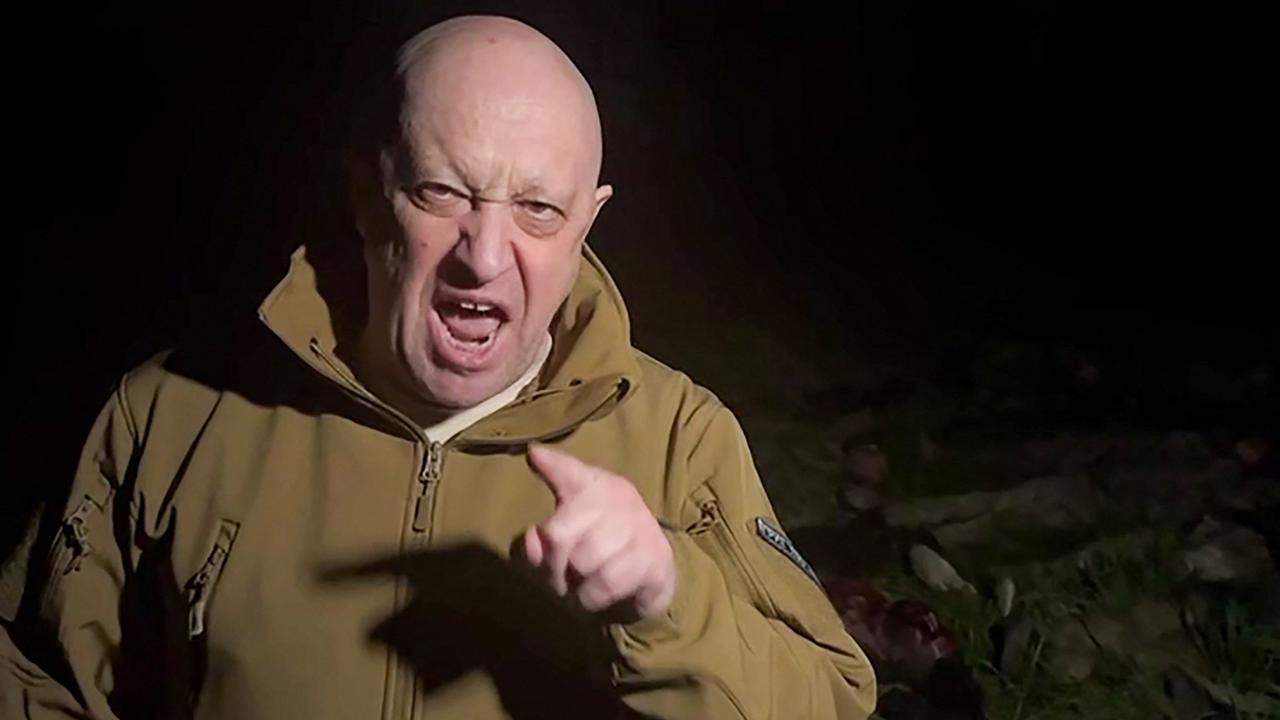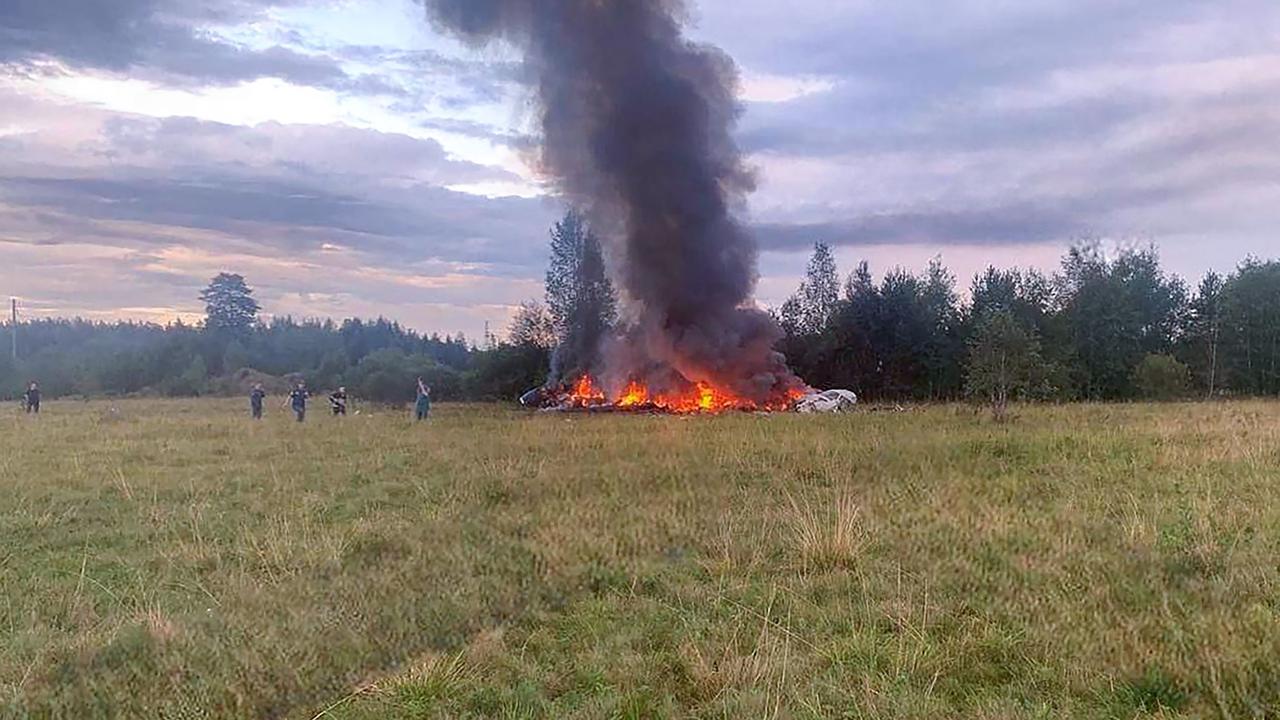This article is more than
2 year oldRussian President Vladimir Putin on Thursday expressed his “condolences” over a plane crash that killed Wagner chief Yevgeny Prigozhin, describing him as a man who made mistakes but “achieved results”.
An investigation is currently underway into what caused Wednesday’s crash, which came exactly two months after Wagner’s short-lived rebellion against Moscow’s military leadership.
“First of all I want to express words of sincere condolences to the families of all the victims,” Putin said in a televised meeting, calling the incident a “tragedy”.
“I knew Prigozhin for a very long time, since the early 90s. He was a man of complicated fate, and he made serious mistakes in his life, but he achieved the right results,” Putin added.
He said that an investigation had been launched into the crash, and that “it will take some time”.
“It will be conducted in full and brought to a conclusion. There is no doubt about that,” Putin said, in footage showing a meeting with the Russian-installed head of the Donetsk region Denis Pushilin.
The circumstances of the crash, which claimed the lives of some of Prigozhin’s close entourage, have prompted furious speculation about a possible assassination.

Russian supporters of Prigozhin gathered outside the Wagner headquarters in Saint Petersburg on Thursday to pay their respects.
Prigozhin was branded a “traitor” by President Vladimir Putin after his short-lived rebellion against the conventional Russian army on June 23-24.
But he remained popular among Russians, who acclaimed the battlefield achievements of the Wagner paramilitary group — despite many accusations of abuses and war crimes.
“You could say it’s like losing your father,” said Igor, one visitor to the building, who was wearing a hat with the Wagner logo and the national flag on it.
“He was everything to us, because everyone was always waiting (for) what Uncle Zhenia (Prigozhin) was going to say.”
Like Igor, many Russians eagerly awaited Prigozhin’s outspoken videos and audio messages on social media. The expletive-packed clips were a sharp contrast to the tightly controlled narrative of Russian officials.
His verve and unbridled criticism of Russia’s regular army had turned him into a cult figure for parts of Russian society — and antagonised Moscow’s top brass.
Tensions degenerated into a violent but short-lived mutiny at the end of June. The rebellion ended with a deal, mediated by Belarusian leader Alexander Lukashenko, under which Prigozhin was expected to move to neighbouring Belarus with some of his fighters.
There was no mention of Prigozhin’s rebellion — or the ensuing public repudiation by Putin — from the mourners laying red carnations in front of Wagner’s glass-fronted multistorey headquarters, opened last autumn to great fanfare.

They also avoided speculating on the reasons behind the crash of the plane, on which Wagner’s operational chief Dmitry Utkin was also a passenger.
Russian officials have launched a probe into the cause of the crash, but investigators gave no update on Thursday.
Mourners however expressed a familial affection for the warlord, who spent years in prison in Soviet times before making a fortune through his catering business and later building Russia’s most powerful private army.
Pavel Zakharov compared Prigozhin to Charles de Gaulle, France’s former president and head of the resistance against the Nazis.
“You know, when in France President Charles de Gaulle died, it was said that France had become an orphan.
“I can only say that for me tonight, it’s probably Russia that has become an orphan,” the 36-year-old said.
Among the crowd was Natalya, a 31-year-old woman who arrived on a bike, a bouquet in hand.
She said it felt as if she had lost a family member.

“For us he had become like a friend, a brother. I think this is very significant moment for the soldiers today,” she said.
But some feared that Prigozhin’s death would raise tensions in Russia. “I hope it will not become for our society some kind of red rag to a bull,” said Natalya.
Some Muscovites were also mourning.
“This is a great tragedy for our country,” said Andrei Senkin, a 53-year-old businessman.
“It is a very sad situation. We feel sorry for the heroes of our country [PMC Wagner], who are in demand today more than ever.”
And in Moscow at least, some speculated on the reasons of the crash. “There can be several versions,” Nikita Gushchev, 21, told AFP. “It could be shot down by air-defence systems or it could be a terrorist attack. Or it could be a staged death to let him live in peace.”
Prigozhin’s fate had been a matter of speculation for two months, since he led a rebellion widely seen as the biggest challenge to Putin’s more than two decades-long rule.
In an unusual deal with Minsk, the Kremlin “guaranteed” he would be allowed to live in Belarus.
“I think no one was surprised, including me,” said Veronika Anokhina, a 32-year-old entrepreneur of the air crash.
“It’s very logical news in the succession of news in our country.”
– AFP